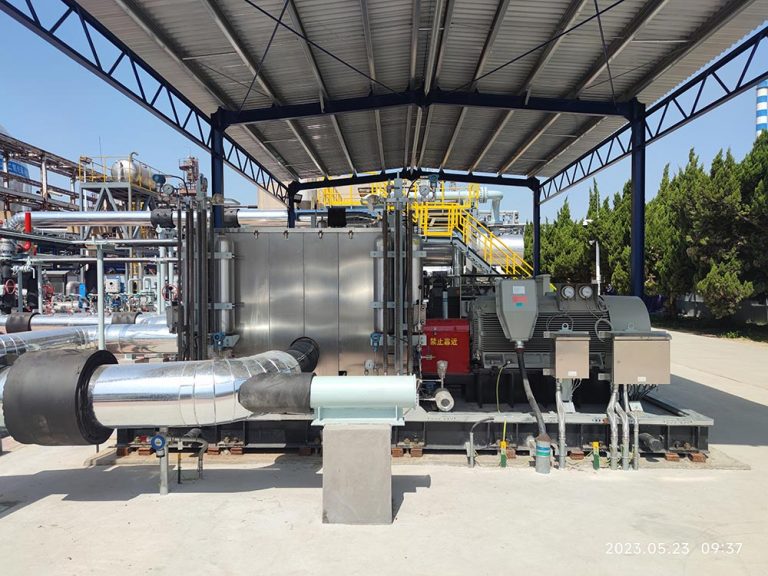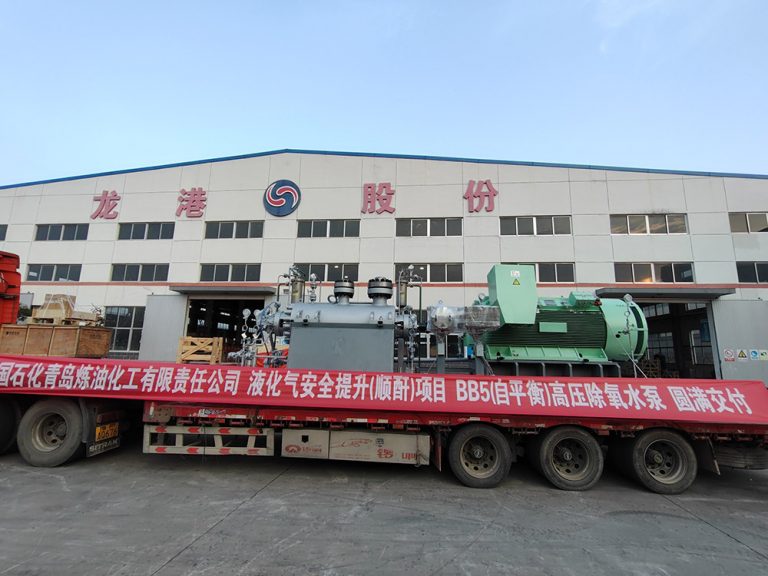API pumps play a crucial role in various industrial applications, particularly in the petrochemical and oil and gas industries. These pumps are designed to meet strict industry standards, ensuring efficiency and reliability under challenging conditions. As processes become more complex and demanding, understanding when and how to utilize API pumps becomes essential for maintaining operational integrity. This article will delve into the characteristics of API pumps, the scenarios where they excel, and the advantages offered by Longgang‘s API pumps.
Understanding API Pumps: What Are They?
API pumps are a category of centrifugal pumps that adhere to the standards set forth by the American Petroleum Institute. They are specifically designed for the transportation of fluids in volatile environments. These pumps are engineered to operate under high pressures and temperatures, making them suitable for a variety of applications. The design of API pumps includes features that enhance their durability and effectiveness, such as mechanical seals, robust bearings, and specialized casings that mitigate radial and axial forces.
Characteristics of API Pumps
API pumps are characterized by their compliance with internationally recognized standards, ensuring that they are built to withstand harsh operational conditions. These pumps exhibit several key features, including corrosion resistance, high efficiency, and the ability to handle abrasive and chemically reactive fluids. The materials used in their construction are tailored to ensure compatibility with various media, ensuring safe and effective operation even in extreme conditions.
When to Implement API Pumps in Complex Scenarios
API pumps are ideal for a range of complex scenarios where traditional pumps may fall short. Their robust design and engineering allow them to excel in various challenging environments.
Industries Benefiting from API Pumps
Various industries, including oil and gas, petrochemical, and power generation, greatly benefit from the implementation of API pumps. In oil refineries, for example, these pumps are used to transport crude oil and refined products, ensuring that operations run smoothly and safely. Similarly, in petrochemical processes, API pumps facilitate the movement of various chemical compounds, promoting efficiency and minimizing downtime.
Conditions Where API Pumps Excel
API pumps are particularly effective under certain conditions, making them an essential component in many specialized applications.
Handling High-Pressure Environments
One of the primary advantages of API pumps is their capacity to handle high-pressure environments. These pumps are engineered to operate safely and efficiently under significant pressure, often seen in oil and gas extraction operations. The robust construction and advanced sealing mechanisms ensure that API pumps can withstand the stresses associated with high-pressure applications.
Managing High-Temperature Operations
API pumps are also designed to manage high-temperature operations, which are common in chemical processing and oil refining. The materials used in the construction of these pumps are selected to maintain performance and integrity at elevated temperatures, making them suitable for critical processes where heat can impact fluid behavior.
Ensuring Chemical Compatibility
In industries dealing with a wide range of chemicals, ensuring compatibility with the media being pumped is vital. API pumps boast a variety of materials and sealing options that make them suitable for pumping corrosive and abrasive fluids. This adaptability is crucial for maintaining safety and ensuring efficient operation in environments where chemical reactions could pose risks.

Advantages of Using Longgang’s API Pumps
Longgang’s API pumps provide several advantages that enhance operational efficiency and safety in complex scenarios.
High Efficiency and Reliability
Longgang’s API pumps are designed for high efficiency and reliability, ensuring that operations do not incur unnecessary downtime. These pumps are engineered with advanced hydraulic designs and simulation tools, allowing them to perform at optimal levels in various conditions. Their robust construction translates to reliability over prolonged periods, reducing maintenance needs and associated costs.
Customization Options Available
Another significant advantage of Longgang’s API pumps is the availability of customization options. Clients can specify requirements tailored to their particular applications, enabling the pumps to meet unique operational challenges. This flexibility is crucial in industries where specific conditions can vary greatly from one application to another.
Maintenance and Durability
Longgang’s API pumps are designed withdurability in mind, minimizing the likelihood of failures that can disrupt operations. Maintenance processes are streamlined, allowing for easier access to critical components without extensive disassembly. This design philosophy not only enhances the lifespan of the pumps but also ensures that they continue to operate efficiently throughout their service life.
In conclusion, API pumps stand as a cornerstone technology in numerous demanding industries. Understanding when to implement these pumps and recognizing their inherent advantages can significantly impact operational success. With options like Longgang’s API pumps, users can expect tailored solutions that not only meet industry standards but also excel in their specific environments.

Installation and Operational Tips for API Pumps
Pre-Installation Considerations
When preparing for the installation of API pumps, several critical factors need to be considered to ensure optimal performance. Among these, understanding the specific requirements of the application is vital; this includes evaluating the type of fluids being transported, their temperature, and the pressure conditions. Additionally, it is essential to ensure that the selected API pump aligns with industry standards, particularly those set by the American Petroleum Institute (API). Sizing is another crucial consideration, as an improperly sized pump can lead to inefficiencies and increased wear.
The installation environment must also be thoroughly assessed. Factors like vibration control, alignment with other equipment, and access for maintenance play a significant role in the successful operation of the pump. It is advisable to consult installation manuals and guidelines specific to the pump model being used and ensure all safety measures are implemented. Failure to address these pre-installation considerations could lead to suboptimal performance and premature equipment failure.
Another essential aspect is the selection of suitable auxiliary systems that work in tandem with the API pumps. This includes monitoring and control systems that can provide real-time data regarding the pump’s performance. By integrating these systems, operators can conduct proactive maintenance, reduce downtime, and ensure the longevity of the pump.
Operational Best Practices
To maximize the performance and reliability of API pumps in operation, several best practices should be adhered to. One such practice is conducting regular inspections and maintenance according to the manufacturer’s recommendations. This includes checking for signs of wear in critical components such as seals and bearings. Addressing minor issues promptly prevents them from escalating into major problems that could lead to costly downtime or even safety hazards.
Additionally, operators should ensure that the pump is operating within its specified parameters. Monitoring critical performance factors—such as flow rate, pressure, and temperature—can aid in identifying any deviations from expected performance early on. In the event of an anomaly, operators should investigate the underlying causes and take corrective actions as necessary to restore optimal function.
Training staff on the operation of API pumps is equally important. Ensuring that personnel are knowledgeable about the pump’s features, operational limits, and maintenance routines contributes significantly to overall pump performance. Regular training sessions can help familiarize the team with the equipment, thus reducing the likelihood of operational errors.
Lastly, routine documentation of maintenance activities serves as a valuable reference for future operations. Keeping detailed records encourages accountability and allows for better analysis of trends over time. This practice can ultimately lead to improved performance and maintenance strategies.
Leveraging Longgang’s Expertise in Your Projects
Supporting Services and Assistance
Longgang prioritizes customer satisfaction by providing comprehensive support services to complement its product offerings. This includes technical assistance during the installation phase, where experts help ensure proper setup and alignment of pumps to prevent issues during operation. Clients benefit from professional guidance that enhances pump performance and efficiency right from the start.
Moreover, Longgang offers ongoing technical support to help organizations optimize the lifecycle of their API pumps. From detailed documentation to on-site training, support is tailored to ensure that the operational personnel can effectively manage and maintain their equipment. Longgang also provides maintenance contracts that include regular inspections and servicing, ensuring that the pumps consistently operate at peak performance.
In addition to technical services, Longgang emphasizes the value of knowledge sharing—providing clients access to a wealth of resources and expertise. This enables organizations to stay updated on the latest advancements in pumping technology, ensuring they can effectively adapt to evolving industry standards and practices. Through collaborations and information exchange, Longgang fosters an environment where projects are not only supported but also optimized.
Longgang’s ability to provide comprehensive support services and a robust product range reinforces its position as a fundamental partner in the success of fluid transport operations. By leveraging Longgang’s advanced API pumps and associated services, businesses can ensure operational integrity, enhance safety measures, and optimize overall performance, paving the way for sustained success in their respective industries.








